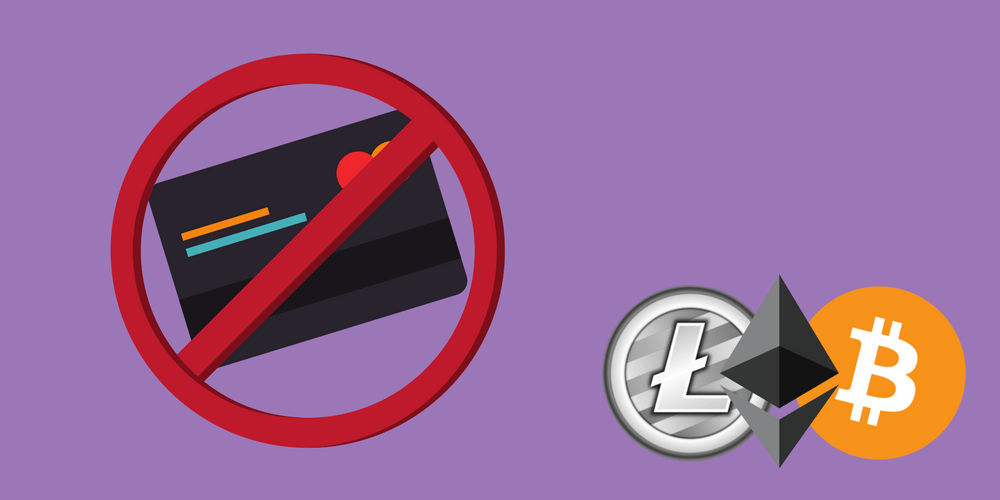
Major credit card issuers and financial service providers Citigroup, Discover, JPMorgan Chase, and Bank of America are disallowing their clients from purchasing cryptocurrencies with credit cards.
This week, in an official statement provided to Bloomberg, Bank of America announced that both individual and institutional clients will no longer be able to invest in the cryptocurrency market using its credit cards, even on well-regulated cryptocurrency exchanges such as Gemini and GDAX.
The statement from Bank of America follows a similar decision from Citibank who is also stopping their customers from purchasing cryptocurrency using credit cards. Citibank noted that it may reconsider its policy on cryptocurrency investment in the future, as the market evolves and matures.
In January, a survey conducted by personal loan research firm LendEDU revealed that 22 percent of bitcoin users in the US have invested in cryptocurrencies using credit cards, essentially by acquiring debt. Instead of wiring available funds from bank accounts, 22 percent of investors used their credit cards to purchase bitcoin and failed to pay off their credit cards immediately after investing in the market.
“The wisest and most frugal way to fund a virtual currency exchange account would be through an ACH transfer, which is completely free of charge. Only 18.60 percent of our 672 Bitcoin-invested respondents were paying for the cryptocurrency in this fashion. However, this was not even the most pressing concern coming from the LendEDU poll. That recognition belongs to this data-point: 22.13 percent of Bitcoin investors did not pay off their credit card balance after purchasing Bitcoin,” wrote LendEDU researchers.
Although banks have disabled credit card usage on major bitcoin and cryptocurrency exchanges, investors are still able to use debit cards and ACH bank transfers to purchase bitcoin with fiat currencies like the US dollar. In the long-term, the prohibition of credit card usage on bitcoin exchanges is beneficial for the market, as it prevents investors from obtaining debt to invest in bitcoin and other cryptocurrencies.
As seen in the recent correction and minor recovery, the cryptocurrency market is extremely volatile. It is normal to see 20 to 30 percent daily gains and losses. As such, experts discourage investors from excessively investing in the cryptocurrency market, especially without fundamental knowledge in the market and technologies behind most cryptocurrencies.
Emphasizing the importance of responsible and balanced investment, Cornell professor Emin Gün Sirer stated, “You should only invest in and hold coins which you believe will be used, extensively, in the long run. If you bought coins on a whim, without an investment thesis, based on hype, well, they are pure speculation. At the end of the day, cryptoassets are just like every other asset. You need to have a firm investment thesis, and you should reevaluate it as more information becomes available.”
While the ban on credit card usage by major banks will definitely have a negative impact on the market in the short-term, it will disallow investors from obtaining debt to invest in the market.

